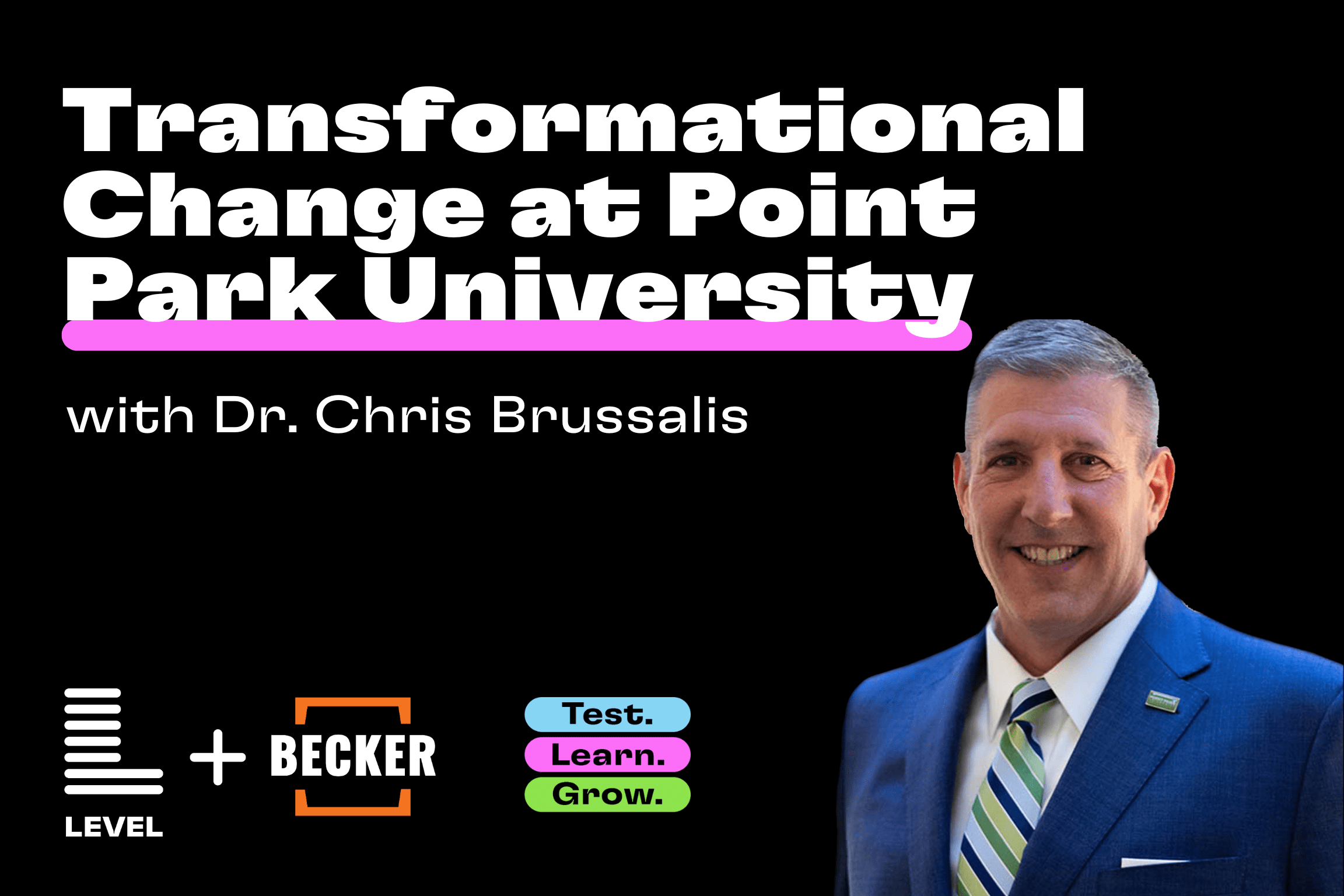
For Chris Brussalis, President of Point Park University, it’s time to re-think higher ed. For him, this means program expansion to reach nontraditional students, especially adult learners. It means applying the university’s mission to its downtown Pittsburgh location, and involving students in the cultural life of its community. And finally, finding like-minded leaders who are ready to support a bold vision.
Basically, it means embracing experimentation and change that will ultimately enable institutions to do more than they ever could before. Test. Learn. Grow, right?
Listen to our conversation on ways that innovative higher education institutions can adapt and grow in a time when many are facing dwindling enrollments and stiff competition.







